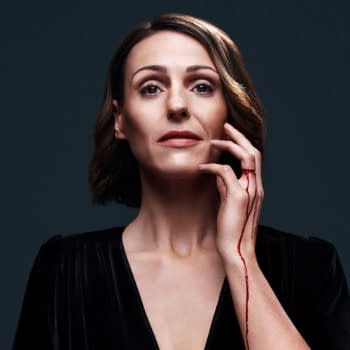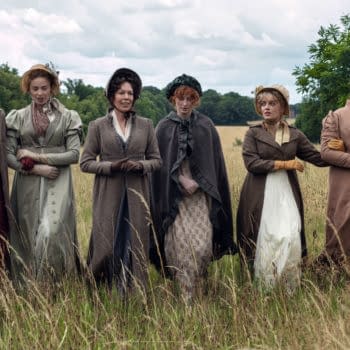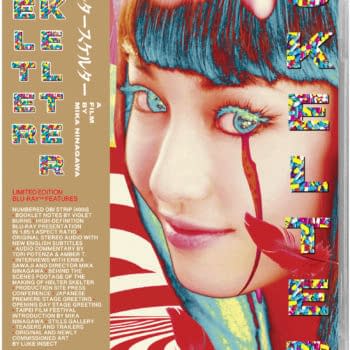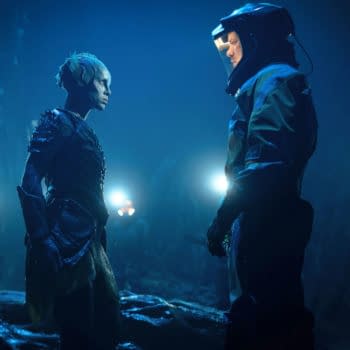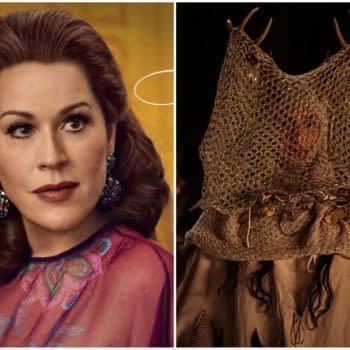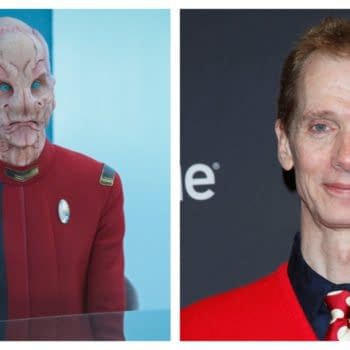Posted in: BBC, Doctor Who, Review, TV | Tagged: bbc, bbc america, bleeding cool, bradley walsh, cable, doctor who, Gallifrey, graham, jodie whittaker, mandip gil, opinion, Ryan, series 12, streaming, tardis, television, Time Lords, Tosin Cole, tv, Yaz
"Doctor Who": Our Prescription for a Better Series 12 [OPINION]
Series 12 of BBC's Doctor Who is finally in production – and since it won't be on the air until 2020, that means everyone gets to speculate on what it'll be like.
Series 11 was practically a new show – it had a completely new cast, new showrunner, new design and new composer. It was still Doctor Who, same but different – but perhaps too different for some fans. The biggest change, of course, was the Doctor was now a woman. Jodie Whittaker became the first actress to play The Doctor. At heart she was the same character as the last 50 years, but now in a female body. She was the biggest bone of contention amongst fans who didn't like change. Right-wing sexists screamed and wailed on social media about the show "pandering to political correctness and 'social justice warriors".

When series 11 aired, the ratings were higher than previous runs despite fluctuating throughout the seasons. The season was nominated for multiple awards. Two of the episodes – "Rosa" and "Demons of the Punjab" – were even nominated for a Hugo Award.
And yet by season's end, there was a sense of dissatisfaction with the season. Even fans who liked it sensed something was missing. They wished old villains had returned. Some fans wished former companions returned. Others wished there was more continuity from the show's lore.
I think the reason the season wasn't completely satisfying came down to one thing:
There was not enough of the Doctor in it.
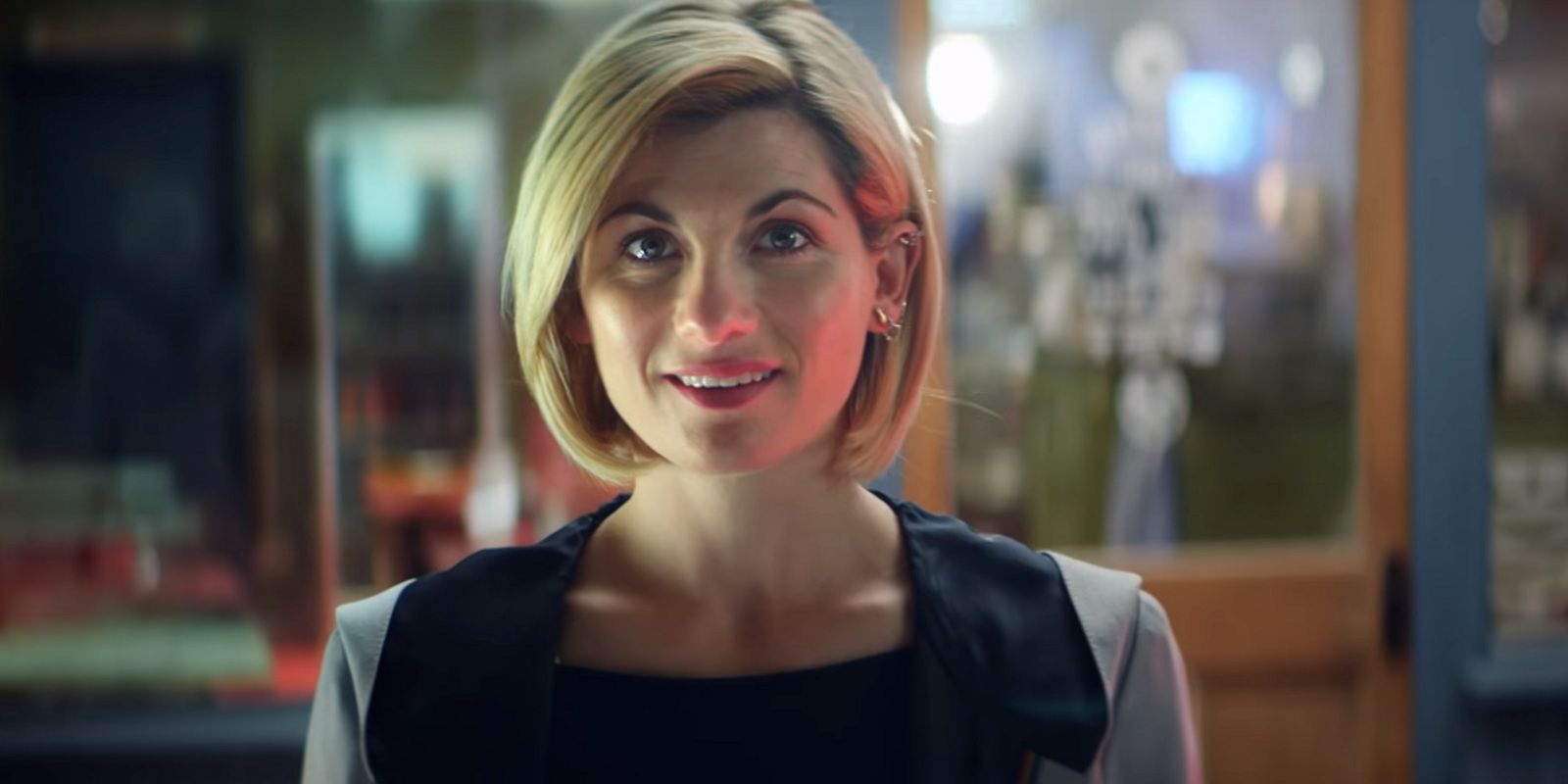
The Doctor Should Not Be a Supporting Character on Her Own Show!
For me, the biggest problem with Series 11 is there wasn't enough of the Doctor in it. She was frequently a supporting character in everyone else's story. Stuff was already going on with the characters and the Doctor wandered in as a "deus ex machina" to solve everything.
We come away from Series 11 knowing very little about The Doctor. In past seasons, we came to know the 9th, 10th, 11th and 12th Doctors intimately as their first seasons progressed. We only had one special anniversary episode to meet the War Doctor (John Hurt), and the story was revealed very quickly what drove him and what tormented him. Hell, we only had six minutes to meet the 8th Doctor again in the short The Night of the Doctor. That short prequel to the anniversary special told a complete story of the 8th Doctor's journey and its end.
Yet this Doctor is still a bit of a mystery.
Yes, fundamentally, the Doctor has the same core character no matter what he or she looks like. The Doctor is an alien who helps people in need throughout Time and Space. Still, every showrunner and every actor finds a variation and a story arc for the Doctor during their run. We didn't get one for the 13th Doctor's first season. Every previous season gave the Doctor a personal stake in the story. That's Screenwriting 101. Personal states for the main character reveal his or her true character. They reveal a character's inner life and motivations. Each season's personal arc revealed something new about The Doctor. Without that, The Doctor became a cipher. Just an adventurer in a blue box.
That's why the moment where the Doctor faced a sentient universe that took the form of a frog stood out so much. It was odd, it was wacky, and it revealed the Doctor's sense of wonder and loneliness at the same time. It was the one moment in the whole season where the science fiction ideas were unexpected and high concept, and revealed the Doctor's character. There should have been more of that.
She had no arc of her own. There were hints that she might have a mysterious past unknown even to her – that she's still trying to run from something – but that was dropped and never mentioned again for the rest of the season. She took a backseat to Graham and Ryan. When she wasn't handling the science fiction plot, she was just their "best friend" who was the catalyst to their arc. The season was their story – never hers.

The Show is Called "Doctor Who", Not "Graham and Ryan"!
Graham and Ryan got the bulk of the emotional story in the whole season. Their arc was already in place: Graham was a man in remission from cancer who fell in love with his nurse while in hospital. He married Grace and began a new life as a husband and step-grandfather to Ryan. Ryan was a 19-year-old who lost his mother and an absentee father, raised by Grace and wary of this new man in her life.
The season saw Graham and Ryan gradually change as they went through each adventure. Ryan slowly comes to acknowledge Graham as family and his grandfather. Graham comes to terms with the loss of Grace when he's confronted with a recreated version of his dead wife. Ryan even gets reconciled with his absentee deadbeat dad.
Graham and Ryan's arc was the best-written part of the season…but that's not really Doctor Who.
Instead, it's boilerplate British drama and soap opera and not science fiction. All the science fiction plots of the season felt like stopgaps before the next part of Graham and Ryan's arc. Their emotional arc was given more time than the Doctor or Yasmin – neither of whom got an arc at all.
!["Doctor Who": Our Prescription for a Better Series 12 [OPINION]](https://thedoctorwhocompanion.com/wp-content/uploads/2018/11/Kerblam-Mandip-Gill-Yasmin-Khan.jpg)
Give Yaz an Actual Personality and Story Arc!
Yasmin Khan is a young community police officer who wants to do more. She has loving and slightly annoying parents and a sister glued to social media. She decides to travel with the Doctor because her family drives her crazy and she wants to do some good. Not the worst reason to be the Doctor's companion, but there are no stakes for Yaz here. She could just decide to stay home at any time.
Graham and Ryan decide to travel with the Doctor because they're in deep mourning for Grace and that reason has poignance. Yaz just… wants to get out of the house?
Many of the Doctor's past companions traveled with him because they wanted to see more. They wanted to be something bigger. They were unsatisfied with their lives. Rose was just a girl living on a council estate whiling away her time until the Doctor shows her how much more there was out there. She ended up living in an alternate universe reunited with the father she never met and becoming a guardian of Time and Space. Martha Jones was a junior doctor in a London hospital who becomes infatuated with the Doctor and what he represented.
So far, Yaz seems a little bit like Rose – except she's a cop, which is a callback to Bernard Cribbins' character in the Peter Cushing movies of the Sixties. She's such a blank that fans got excited at the possibility that she was bisexual when her mother asked if she was dating Ryan or the Doctor. We have no inkling of Yaz' inner life the way we did with Rose, Martha or Donna. A main character in a hit show should not be so underdeveloped.
Even in the episode "Demons of the Punjab", which explored Yaz' family history, she was not the main character. She was a supporting character in the revelation of her grandmother's secret history and how the family came to be. Yaz' family history was a way to explore the history of the Partition of India and Pakistan, but it didn't reveal anything about Yaz' character. She, the Doctor, Graham and Ryan were only there to serve the plot.
It's ironic that for all the victory of a woman playing the Doctor and the first female South Asian companion, the season ended up neglecting both women in favour of mending the male companions' broken hearts.
Here's hoping BBC's Doctor Who Series 12 gives us meatier stories – and The Doctor and Yaz real stories.



